Case: Loblolly Muddies the Water

Mississippi is a race-notice jurisdiction. Pursuant to Miss. Code Ann. § 89-5-1 “the priority of time of filing shall determine the priority of all conveyances of the same land as between the several holders of such conveyances.” Further, pursuant to Miss. Code Ann. § 89-5-5, “with reference to all instruments which may be filed for record under this section, the priority thereof shall be governed by the priority in time of the filing of the several instruments, in the absence of actual notice.”
A discussion of these key statutes was conspicuously absent from the Mississippi Supreme Court’s recent decision to affirm the trial and appellate court decisions in Loblolly Properties LLC v. Le Papillon Homeowner’s Assn. Inc., 2021-CA-00767-COA, 2022 WL 4478395 (Miss. App. Sept. 27, 2022), reh’g denied (Jan. 31, 2023), cert. granted, 358 So. 3d 1060 (Miss. 2023), and aff’d, 2021-CT-00767-SCT, 2023 WL 5311529 (Miss. Aug. 17, 2023).
Le Papillon Homeowner’s Association Inc. sought to collect homeowners’ association fees from Loblolly Properties LLC for the nine lots it owned in the Le Papillon development. Loblolly argued that it did not have to pay HOA fees because a nonjudicial foreclosure sale extinguished all restrictive covenants on the subject lots. The trial court disagreed, finding that the covenants were on record when Loblolly purchased the subject lots in the Le Papillon property. The trial court also held that Loblolly’s Special Warranty Deed’s language clearly stated that the “conveyance and the warranty hereof is subject to any and all Covenants and Restrictions of record.” The trial court later granted summary judgment for Le Papillon. Loblolly appealed, raising two issues: (1) whether the foreclosure sale made the covenants and restrictions not binding, despite the language of the Special Warranty Deed; and (2) whether the foreclosure extinguished the covenants and restrictions. The Court of Appeals affirmed the judgment of the trial court, holding that Loblolly was bound to the covenants through the language in the Special Warranty Deed and that the foreclosure did not extinguish the covenants and restrictions. Upon a review of the record and law in this state, the Mississippi Supreme Court affirmed the Court of Appeal’s decision finding it “consistent with the state’s case law concerning notice and the purpose of HOAs and their covenants.” The Supreme Court also found that the foreclosure sale did not extinguish the HOA’s covenants.
Does this case mean that the foreclosure of a prior deed of trust … does not in fact wipe out the junior interest? If so, under what circumstances? Who determines whether a junior lien or encumbrance “benefits” the land such that the foreclosure of a senior deed of trust would not in fact wipe the lien?
For a detailed analysis of the Court of Appeals decision, see Does Foreclosure Of A Deed Of Trust Extinguish Restrictive Covenants? by Rod Clement published April 20, 2023.

